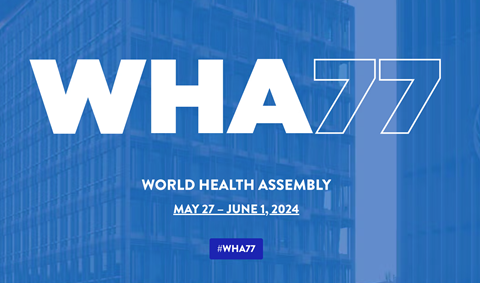By Iyemah David
Stakeholders in the health sector say the challenges facing African healthcare services delivery require global attention to address.
The stakeholders stated this at the Pre-77th World Health Assembly via webinar, outlining the expectations from the upcoming assembly in Geneva, Switzerland, holding from May 27 to June 1.
Dr Githinji Gitahi, the Group Chief Executive Officer of Amref Health Africa, said that the increasing youth population had the potential of a demographic dividend for the continent, saying however, that a pervasive lack of hope seemed to threaten this potential.
“This health crisis in Africa is not merely a regional issue; it has global implications. The continent’s vulnerable position, particularly in terms of health equity, demands immediate and comprehensive action.
“The international community must recognize the interconnectedness of these challenges and collaborate to address both the direct and indirect impacts of climate change on health systems,” he said.
Gitahi said it was time to act. “Focusing on improving health services in Africa will not only benefit the region but also contribute to global health security and equity. The world must unite to support Africa in overcoming these challenges and ensure a healthier, more hopeful future for its people,” he added.
He said that Africa often prioritised certain diseases outbreaks over others, not realizing that all of them directly affected the continent’s structures, particularly its finances.
“If we had local production of medicines, the responsiveness of the vaccination process would be faster. People in Africa are impacted by the climate crisis yet lack access to health services.
“Additionally, regional conflicts force people to move farther away from healthcare facilities,” he said.
Addressing the persecution of LGBTQI people in Africa, Gitahi stated, “When you criminalize groups, you take away their ability to access health services. Then you increase the pool of reinfection. This is a big health issue and we must fight against it.”
Dr Matshidiso Moeti, Regional Director of WHO AFRO, assured of working with partners in terms of refresher training, health education, and response to epidemic outbreaks.
“Africa is a diverse continent, and in this diversity lies the richness of capacity to leverage different perspectives for improving the health of African people,” she said.
Moeti said that Africa faced a high burden of NCDs and significant financial gaps in addressing diseases outbreaks.
“COVID-19 exacerbated these issues, impacting those with NCDs the most,” she said.
She said that while progress had been made in lowering maternal and child mortality, the continent still had a disproportionate share of global deaths during childbirth.
“One major topic at the assembly will be planning for unexpected pandemics. Africa is very much dependent on foreign aid, and we need to work on that.”
Dr Ngashi Ngongo, Chief of Staff and Head of Executive Office at the Africa Centre for Disease Control and Prevention, asserted that health was a right for every citizen on the continent.
Ngongo said the Africa CDC would advocate for health equity for all at the 77th World Health Assembly (WHA).
“This assembly presents an opportunity for the continent to gather and address the health challenges we encounter in Africa. It allows us to unite as a continent to tackle our issues collectively,” he said.
He said that Africa experienced 166 epidemic outbreaks, triggered by a combination of factors, including climate change, which exacerbated the spread of diseases such as malaria, Ebola, and cholera.
The global health community will focus on Geneva as leaders and advocates come together for the 77th World Health Assembly (WHA 77).
This gathering serves as the primary decision-making platform for the World Health Organization and brings delegates from its 194 member states together every year.
During a recent briefing, Dr Tedros Adhanom Ghebreyesus, WHO’s Director-General, emphasized the significance of the 2024 meeting, calling it “one of the most significant in our 76-year history” as member states are expected to finalize negotiations to strengthen global pandemic preparedness and response.
Under the theme “All for Health, Health for All,” WHA 77 will cover a wide range of topics, including universal health coverage, influenza preparedness, reducing public health risks from live wild animal markets, and the impact of climate change and pollution on health.




